True Unicorn Root
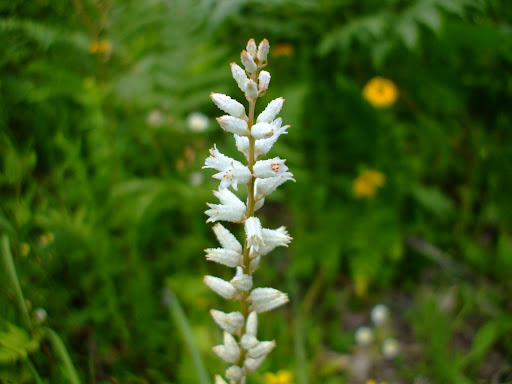
True Unicorn Root (Aletris farinosa) is a perennial herb known for its medicinal properties. The plant has narrow, grass-like leaves and produces small, white or greenish flowers arranged in a dense, spike-like inflorescence. The root is the primary part used for its therapeutic benefits. True Unicorn Root is valued in traditional medicine for its potential to support female reproductive health and overall wellness.
1. Size:
- The plant typically grows to a height of 12 to 24 inches (30 to 60 cm). The root is slender, with a length of about 3 to 6 inches (7.5 to 15 cm).
2. Color:
- The leaves are green, and the flowers are white or greenish. The root itself is cream-colored to light brown.
3. Texture:
- The leaves are narrow and smooth, while the root has a slightly fibrous texture. The flowers have a delicate, clustered appearance.
4. Fragrance:
- True Unicorn Root has a mild, earthy aroma. The scent is not strong but can be noticeable when the root is dried or used in tinctures.
5. Uses:
True Unicorn Root is traditionally used to support female reproductive health, including regulating menstrual cycles and easing symptoms of menopause. It is also believed to have a general toning effect on the body.
The root can be used to make herbal teas or tinctures, which are consumed for their potential health benefits.
It has been used in various traditional remedies to treat conditions like digestive issues and fatigue.
6. Habitat:
- True Unicorn Root is native to North America and thrives in moist, well-drained soils in shaded or partially shaded areas. It is commonly found in woodlands and meadows.
7. Cultural and Spiritual Significance:
Unicorn Root has been historically associated with supporting female reproductive health and balance. It is often used in traditional herbal practices to promote overall well-being.
In various indigenous traditions, True Unicorn Root has been used in rituals and remedies aimed at supporting women’s health and vitality.
Spiritual Properties
Balancing Energy: True Unicorn Root is believed to help balance the body’s energy, particularly in relation to female reproductive health. It is used in spiritual practices to support overall harmony and well-being.
Connection to Nature: The herb is seen as a natural ally in connecting with the earth and promoting a sense of grounding and stability.
Medicinal Properties
Reproductive Health: True Unicorn Root is traditionally used to support female reproductive health, including menstrual regulation and easing menopausal symptoms.
Digestive Support: It is believed to help with digestive issues and can be used to improve appetite and reduce gastrointestinal discomfort.
General Tonic: The root is thought to have a general tonic effect on the body, potentially helping to improve overall energy and vitality.
Allergic Reactions
True Unicorn Root is generally considered safe when used in appropriate amounts and under professional guidance. However, there is limited scientific research on its safety and efficacy, so it is advisable to consult with a healthcare provider before using it, especially if you are pregnant, breastfeeding, or taking other medications.
Allergic Reactions: Some individuals may experience allergic reactions, including skin irritation or digestive discomfort. Those with known allergies to similar plants should use caution.
Skin Irritation: Prolonged or direct contact with the root may cause skin irritation in sensitive individuals. It is advisable to use gloves when handling the herb
Digestive Discomfort: Excessive use of True Unicorn Root may lead to digestive discomfort, such as nausea or upset stomach. It is recommended to use the herb in moderation.
Pregnancy and Breastfeeding: There is limited information on the safety of True Unicorn Root during pregnancy and breastfeeding. It is best to consult a healthcare provider before using the herb during these times.
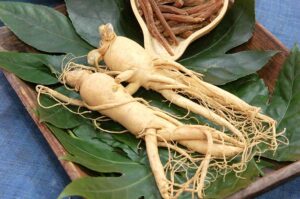
Ginseng Panax
Ginseng Panax Panax Ginseng, also known as Asian Ginseng or Korean Ginseng, is a perennial plant native to East Asia. The root is the most
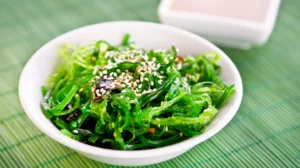
Kelp
Kelp Kelp is a type of large brown seaweed that grows in underwater forests in shallow ocean waters. It is known for its high nutrient
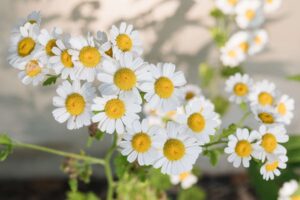
Chamomile Flowers
Chamomile Flowers Chamomile Flowers are small, daisy-like blossoms known for their soothing and calming properties. These flowers have been used for centuries in herbal medicine,
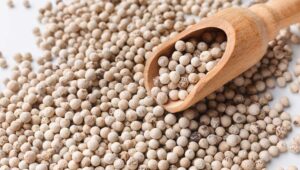
White Peppercorn
White Peppercorn White Peppercorns are derived from the same plant as black pepper, Piper nigrum, but are processed differently. They are fully ripened berries that
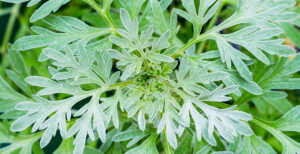
Wormwood
Wormwood Wormwood is a perennial herb known for its bitter taste and distinctive aroma. It is a member of the Asteraceae family and is recognized

Recipe Template
Hibiscus Flowers The overall appearance of hibiscus flowers is bold and exotic, making them a popular choice for gardens, decorations, and floral arrangements. Their stunning